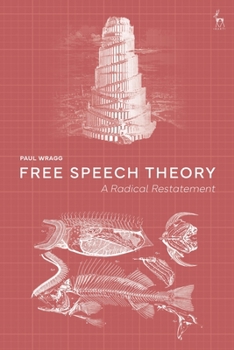Free Speech Theory: A Radical Restatement
What does free speech mean?
In this book, Paul Wragg argues for a universal formulation of free speech drawn exclusively from autonomy. He demonstrates that although the right has some applicability to the horizontal plane, it is more restrictive in some contexts, and more empowering in others, than the literature presently recognises. Reading across jurisdictions produces different, often conflicting, answers to the question of what free speech means. As global citizens of the digital age, we need a reliable means of judging national practices to know if our free speech rights are authentic. Theory is vital to this endeavour. Yet, within it, we find a discourse that is intuitive, lacking coherence, and tainted by national experience. It is a narrative rooted in vertical tropes of state power and democratic participation, seeking application to the horizontal world of private actors controlling the public sphere through social media, employability, and privacy-based interests. This innovative, rigorously researched, and comprehensive restatement of the right to free speech is both topical and important. It is an invaluable resource for policy makers, practitioners, and commentators across the globe.Format:Hardcover
Language:English
ISBN:1509958282
ISBN13:9781509958283
Release Date:May 2025
Publisher:Hart Publishing
Length:368 Pages
Weight:1.00 lbs.
Dimensions:1.0" x 6.1" x 9.2"
Related Subjects
LawCustomer Reviews
0 rating





